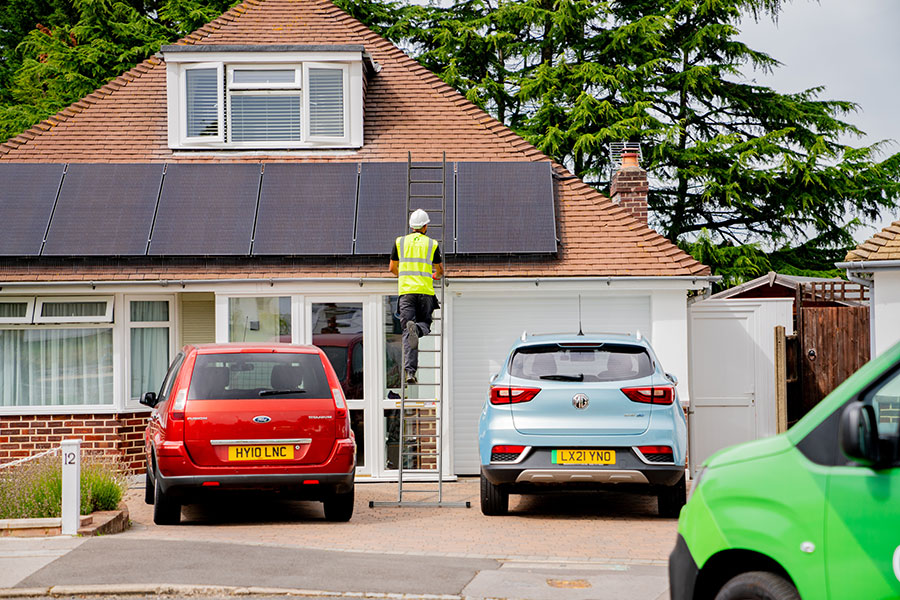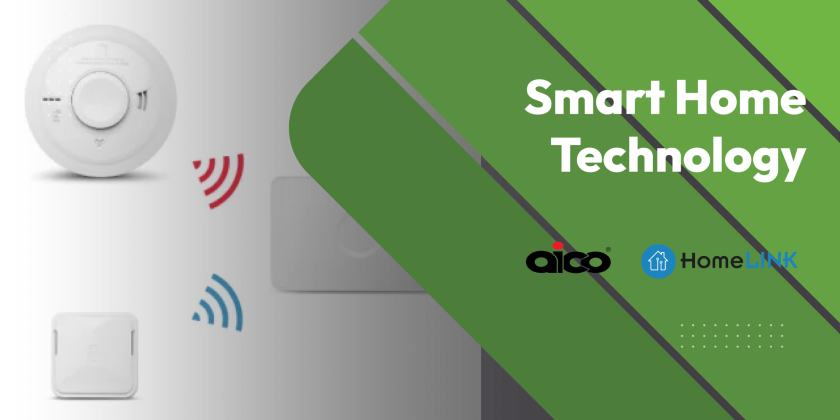The Ultimate Guide to Choosing the Right Solar PV Installer
Choosing the right solar PV installer is the most important decision you’ll make when it comes to getting solar for your home.
With the increasing popularity of solar panels, the market is flooded with companies. This makes choosing the right company harder.
In this guide, we give you practical advice on how to identify reliable solar PV installers. By taking your time to look at qualifications, experience, and customer feedback, you can make an informed decision.
Let’s dive in.
Importance of Choosing the Right Solar Panel Installation
Why Experience Matters
Experience plays an important role when choosing a solar PV installer. Every job is unique and presents a different challenge. Areas with higher density of flats, roofs with smaller footprints and difficult access all rely on the experience of the installer.
Seasoned installers can also provide valuable insights into the best practices for maintaining and optimising your solar PV system. This expertise ensures your installation goes smoothly and contributes to the long-term efficiency and reliability of your solar panels.
- Takeaway:
When evaluating potential installers, consider their track record and the number of installations they have completed. An experienced solar PV installer is more likely to deliver high-quality work, giving you peace of mind that your investment is in safe hands.
Certifications and Training for a Certified Solar PV Installer
Solar panel installers should have the right certification. Certified installers undergo rigorous training to meet industry standards. Certification ensures they possess the necessary skills and knowledge to perform installations safely and effectively.
Look for certifications from recognised bodies such as the Microgeneration Certification Scheme (MCS) in the UK, which guarantees that the installer adheres to high-quality benchmarks. Additionally, membership in professional organisations like the Renewable Energy Consumer Code (RECC) can further validate an installer’s commitment to ethical practices and customer satisfaction.
- Takeaway:
By choosing a certified solar PV installer, you can be more confident that the installation will be executed to the highest standards. This not only ensures the optimal performance of your solar panels but also helps protect your investment by reducing the risk of system failures or inefficiencies. Always verify and check the certifications of potential installers before making your final decision.
Assessing Reputation
A strong reputation is crucial for successfully completing a solar panel project, as it reflects the installer’s ability to deliver custom designs and constructions with minimal disruption.
Start by reading reviews and testimonials from previous clients on various platforms such as Google Reviews or Trustpilot. Pay attention to recurring themes in the feedback, both positive and negative.
Additionally, ask the installer for references and contact these previous clients to get firsthand insights into their experiences. Word-of-mouth recommendations from friends or family can also be invaluable.
Furthermore, check if the installer has received any industry awards or recognitions, which can serve as further evidence of their reliability and expertise.
- Takeaway:
By thoroughly assessing an installer’s reputation, you can gauge their ability to deliver high-quality service and customer support, ensuring that your transition to solar energy is as smooth and rewarding as possible.
Evaluating Installer Quotes
Understanding Cost Breakdown
A transparent quote should itemise all components and services involved, including the cost of solar panels, inverters, mounting systems, labour, and the services to install solar panels.
It should also outline any additional expenses such as permits, inspections, and potential grid connection fees.
By checking these details, you can ensure there are no hidden costs and that you are getting value for your money. Moreover, compare the cost breakdown from multiple installers to identify any discrepancies.
Some installers may offer lower upfront costs but compromise on the quality of materials or workmanship. Conversely, higher quotes may include premium components and extended warranties.
- Takeaway:
Understanding what you are paying for lets you weigh the pros and cons of each quote effectively, ensuring you choose a solar PV installer who offers a fair and comprehensive package.
Comparing Multiple Quotes
Start by gathering detailed quotes from at least three reputable installers. Examine each quote for a clear breakdown of costs, including equipment, labour, and any additional fees. Assess the quality of the components specified in the solar PV systems, as higher-quality materials often come with better warranties and longer lifespans.
Additionally, consider the scope of services offered, such as after-sales support and maintenance packages. Look beyond the price and evaluate the overall value each installer provides. Pay close attention to any variations in the terms and conditions, such as payment schedules and project timelines.
- Takeaway
Comparing these aspects side by side helps you identify which installer offers the most comprehensive and cost-effective solution. This due diligence ensures that your investment in solar energy is both financially sound and aligned with your expectations.
Hidden Fees to Watch For
When evaluating quotes for solar PV installations, be vigilant of hidden fees that could inflate the overall cost of your installation.
Common hidden fees include costs for permits, grid connection charges, and additional labour for unexpected complications. Some installers may also charge extra for travel expenses if your location is outside their usual service area.
Additionally, check if there are any fees for post-installation services such as system monitoring or maintenance visits. These costs can add up and affect your budget. Ensure that the quote includes all foreseeable expenses and ask for clarification on any ambiguous terms. If an installer is reluctant to provide a detailed breakdown or is evasive about potential extra charges, consider it a red flag.
- Takeaway
Transparency in costs is a hallmark of a trustworthy solar PV installer. Being aware of these potential hidden fees helps you make a more accurate financial assessment and avoids unwelcome surprises later on.
Questions to Ask Potential Installers
Warranty and Maintenance Policies
A comprehensive warranty can cover various components, including the panels, inverters, and mounting systems, protecting you against manufacturing defects and performance issues. Typically, solar panels come with a 25-year performance warranty, while inverters may have shorter warranties ranging from 5 to 10 years.
Additionally, inquire about the installer’s maintenance policies. Regular maintenance checks can help ensure your system operates efficiently and can pre-emptively address potential issues. Some installers offer maintenance packages that include periodic inspections and cleaning services. It’s also wise to ask about the process for claiming warranty services—how quickly issues are resolved and whether there are any costs involved.
- Takeaway:
By clarifying these aspects upfront, you can avoid unexpected expenses and ensure that your solar PV system remains in optimal condition throughout its lifespan.
Installation Timeline
Ask for a detailed schedule that outlines each phase of the installation process, from initial site assessment and permitting to final system commissioning.
Understanding the timeline helps you coordinate other aspects of the project, such as financing and any necessary home modifications.
Additionally, inquire about potential delays and how they are handled. Factors such as weather conditions, supply chain issues, and permit approvals can impact the timeline.
- Takeaway:
A reliable installer should provide realistic estimates and communicate any changes promptly. Knowing how long the installation will take allows you to set appropriate expectations and make necessary arrangements. Moreover, a clear timeline can be an indicator of the installer’s professionalism and organisational skills, ensuring that your transition to solar energy proceeds smoothly and efficiently.
Post-Installation Support
After the installation is complete, ongoing support ensures your system operates efficiently and any issues are promptly addressed. Ask the installer about the types of support they offer, such as system monitoring, maintenance services, and troubleshooting assistance.
Some companies provide online platforms where you can track your system’s performance in real-time, helping you identify and resolve issues quickly.
Additionally, find out if there are any costs associated with post-installation services and what the terms are for emergency support.
- Takeaway:
Reliable installers should offer a clear post-installation plan that includes regular check-ups and easy access to customer service. Understanding the scope and quality of post-installation support helps you ensure that your investment in solar energy remains protected and continues to deliver optimal performance over its lifespan.
Red Flags to Avoid
Unlicensed Installers for Solar PV Installations
One of the major red flags when selecting a solar PV installer is the lack of proper licensing. Unlicensed installers may not have the necessary qualifications or adhere to industry standards, which can result in subpar workmanship and potential safety hazards.
Always verify that your installer holds the appropriate licences required by local authorities. In the UK, look for certifications like the Microgeneration Certification Scheme (MCS) that confirm the installer’s compliance with national standards.
Additionally, licensed installers are more likely to be insured, providing you with protection in case of accidents or damages during the installation process.
- Takeaway:
Choosing an unlicensed installer may seem like a cost-saving measure initially, but it can lead to significant problems down the line, including voided warranties and the need for costly repairs. Ensuring your installer is licensed safeguards your investment and guarantees a higher standard of quality and reliability in your solar PV installation.
Unrealistic Promises
Unrealistic promises from a solar PV installer are another red flag to watch for. Be wary of claims that seem too good to be true, such as very short payback periods, guaranteed savings, or exaggerated performance metrics.
Solar energy systems are subject to various factors, including weather conditions, geographic location, and system maintenance, all of which influence their efficiency and financial returns. Reputable installers will provide realistic estimates based on a thorough assessment of your specific situation.
They should be transparent about potential limitations and offer balanced, fact-based projections. When an installer makes grandiose promises without substantial evidence or a detailed rationale, it signals a lack of professionalism and reliability.
- Takeaway:
Trustworthy solar PV installers will prioritise accuracy and honesty, helping you set realistic expectations and make an informed decision. Avoiding those who overpromise ensures that you receive a solar PV system that meets your needs and performs as expected.
Poor Customer Reviews
Poor customer reviews are a significant red flag when choosing a solar PV installer. Negative feedback often reflects consistent issues such as substandard workmanship, poor communication, or unfulfilled promises.
Take the time to read reviews on multiple platforms, including Google Reviews, Trustpilot, and social media. Look for patterns in the complaints, such as delays, hidden costs, or inadequate post-installation support.
Additionally, check how the installer responds to negative reviews. A professional company will address concerns constructively and offer solutions, demonstrating their commitment to customer satisfaction. If you encounter numerous unresolved complaints or a lack of response to criticism, reconsider your choice.
- Takeaway:
Reliable solar PV installers will have a track record of positive reviews and testimonials, indicating their ability to deliver quality service. By paying attention to customer feedback, you can avoid potential pitfalls and select an installer who is more likely to meet your expectations and provide a smooth installation experience.



